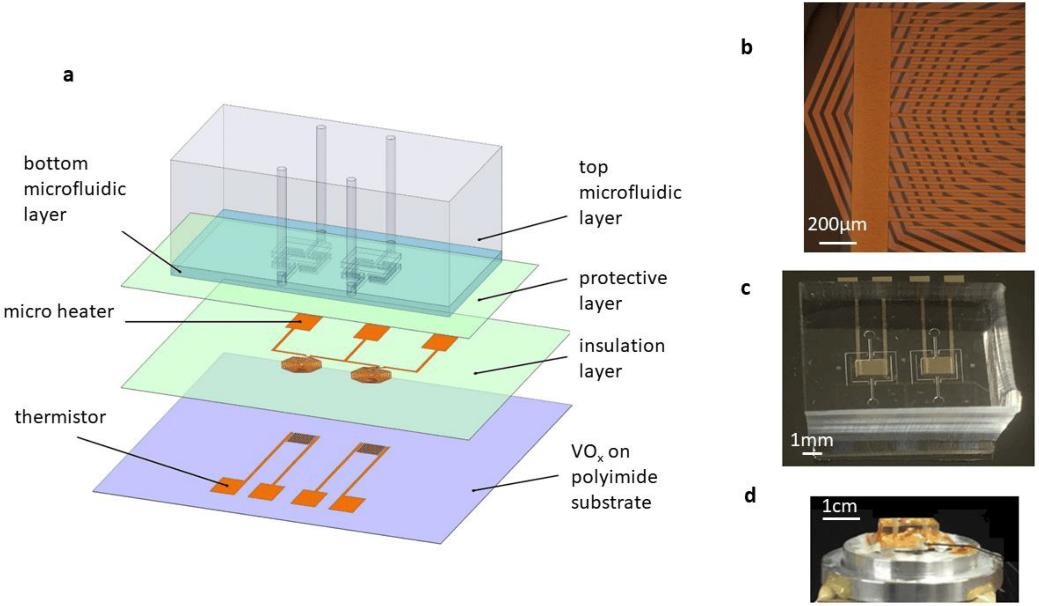Differential Scanning Calorimetry (DSC)
Online Inquiry
Differential Scanning Calorimetry (DSC) swiftly characterizes biomolecules thermally in drug discovery, making it a respected and frequently utilized technology. At Creative Proteomics, we rely on DSC to create and profile antibody drugs in the discovery phase. By gauging various thermodynamic and kinetic parameters, we provide our clients with crucial information on their drug's stability, conformational changes, and thermodynamic properties.
Introduction of Differential Scanning Calorimetry (DSC)
Differential Scanning Calorimetry (DSC) is a thermal analysis method that measures the divergence in power input between the specimen and reference at a controlled temperature. For monoclonal antibodies, DSC spectra generally exhibit three unique variation intervals that correspond to the CH2, Fab, and CH3 regions. The thermal stability of these particular sites is indicative of their ability to remain stable under low pH or high temperature conditions, revealing the likelihood of monoclonal antibodies to unfold and aggregate proteins beyond repair. Consequently, this method is frequently utilized for examining the stability of antibody medications.
 Fig. 1 The MEMS DSC for the protein stability study. (Yu, S., et al., 2022)
Fig. 1 The MEMS DSC for the protein stability study. (Yu, S., et al., 2022)
Our DSC-Based Antibody Drugs Characterization Services
Differential Scanning Calorimetry is a critical analytical tool for characterizing antibody drugs. Thermodynamic and kinetic parameters about antibody drugs can be obtained using this technology. Our scientists will thoroughly analyze the collected data to assist our clients in comprehending the crucial quality attributes of their antibody drugs.
Creative Proteomics can provide the following characterization services and related information to our customers:
Stability assessment
When studying the stability of antibody drugs, we employ DSC technology to identify the melting temperature (Tm) and thermal unfolding/denaturation curves of the drugs at various stress levels and temperatures. By analyzing these key thermodynamic parameters, we can provide our customers with results for evaluating the stability of their antibody drugs for shelf life, storage conditions and formulation studies.
Aggregation analysis
Aggregation analysis is crucial in the development of antibody drugs because it impacts safety, efficacy, and immunogenicity. At Creative Proteomics laboratory, we use our DSC technology to track aggregation-related transitions, promptly identifying and mitigating risks of protein aggregation. This approach ensures the quality and safety of antibody drugs.
Batch-to-batch consistency analysis
Changes in thermodynamic parameters can indicate structural changes or degradation in antibody drugs. At Creative Proteomics, we use our DSC technology to detect any changes in thermal behavior, enabling customers to assess the lot-to-lot consistency of their antibody drugs efficiently.
Advantages of Our Differential Scanning Calorimetry Technology
- High sensitivity to detect even the slightest change in thermal behavior and precisely characterize and monitor the thermal stability of antibody drugs.
- Quantitatively measuring the thermodynamic stability parameters of antibody drugs.
- Rapid and straightforward analysis to gain direct insight into their thermal stability in a cost-effective and high-throughput manner.
Creative Proteomics' team of highly skilled scientists possess extensive experience and expertise in utilizing DSC for the analysis of various antibody drugs. Through selecting our DSC service, we provide you with an in-depth comprehension of your antibody drug's thermal stability and conformational alterations. Contact us to learn more about our service and we will be happy to serve you.
Reference
- Yu, S.; et al. A High-Throughput MEMS-Based Differential Scanning Calorimeter for Direct Thermal Characterization of Antibodies. Biosensors. 2022, 12(6): 422.

 Fig. 1 The MEMS DSC for the protein stability study. (Yu, S., et al., 2022)
Fig. 1 The MEMS DSC for the protein stability study. (Yu, S., et al., 2022)